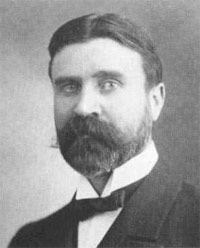This leads to the curtailment and deterioration of service, and, if persisted in, the loss of fine sense of honor which prompts a man to give the best there is in him. Good work cannot be skimped nor done carelessly and in haste-in medicine or in any other field. Time is an important factor.
If, on the contrary, a physician sets his fees too high, or out of proportion to the real value of his service, judged by a fair standard determined by the consensus of professional opinion, he is entering into temptation and violating professional ethics. He can only get them by pretending that he has skill, experience and ability which he does not possess; by deception and misrepresentations or fraud.
To do this is demoralizing and, in the end, ruinous. He may flourish for a time, but in the end he will pay the penalty. Incidentally he is bringing discredit upon medicine, the noblest of all professional. Let every physician,therefore, earnestly take these things into consideration.
Let him regard it, if he pleases, simply as a business proposition, to be worked out in accordance with the principles which have been determined by the consensus of opinion of honorable and successful business men. In doing that he cannot go far wrong.
Let him (theoretically) “capitalize” himself-put a value upon his knowledge, skill, reputation, experience, cash investment in education and equipment and “good will”-at such an amount as he believes he can honestly earn legal interest upon five years ahead and upon that basis compute the value of his time per hour. Let him establish a schedule rate per hour, to be used in estimating his fees for all cases requiring more than the average time (covered by the customary “fixed fee” charged by physicians in his vicinity) as in first examinations, long- distance visits or detentions.
Let him formulate a policy in respect to his mode of doing business-his attitude and demeanor toward his patient, his social relations, his style of living, his personal habits, including dress and manners, his office organization, equipment and technic-everything which goes to make up its “atmosphere”-his manner of receiving and dealing with his patients, his methods of conducting his financial affairs (charging, billing, collecting) and do all this with due regard for the principles of efficiency, equity, justice, reciprocity, modesty, honest and courtesy which, in the aggregate, constitute true service.
In ordinary work the customary fixed fees of his local colleagues of equal standing will be found to nearly correspond to the rate suggested, but a schedule rate per hour is flexible and will enable him to adjust his fee in special cases to the amount of time necessarily spent on them.
There will be cases, involving extraordinary care, responsibility or skill, in which an “honorarium” may properly be added to the regular fee based upon the time schedule.
At the end of the first five years, if the young man has conscientiously carried out this program, he would be justified in doubling his capitalization and rate of charges for the ensuing five years. At the end of ten years he may again proportionately increase his capitalization and raise his rates to correspond; and so on, as the years pass and he gains in knowledge, experience, skill and reputation.
The progressively larger fees will act as a check upon an excess in the number of patients and permit the physician to give to each patient his just dues in time, care and thought and himself the comfortable assurance of proper compensation. This will tend to prevent him from falling into the temptations which lead to moral and professional degeneration.
No physician should accept more cases than he can serve properly, nor demand less or more than adequate compensation.
Eventually it may be to the a advantage of all concerned for the physician to adopt the system of seeing patients by appointment only. This enables him to allot adequate time for each case, prevents waste of patients time in waiting for others and leaves the physician more at liberty.
To those who value the physiological effect of having all the chairs in the waiting room filled, it may be suggested that a special appointment for each patient is of equal if not superior “suggestive” value, and that it savours less of quackery.
The suggestions here made appear to be consistent with professional dignity, good business principles and policies and that unwritten law which requires every member to maintain, unsullied, the honor and ideals of the profession.


